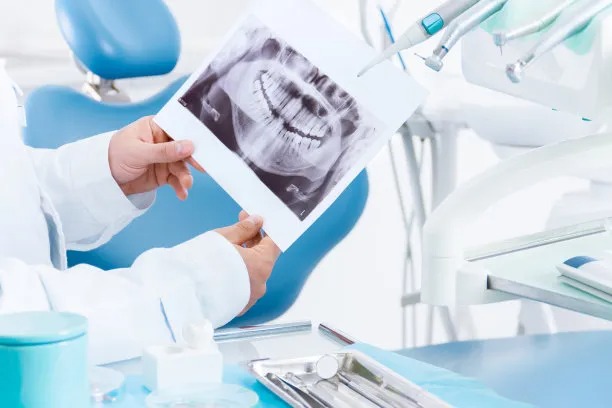The Comprehensive Guide to Understanding Periodontal Disease Causes Symptoms and Effective Treatment Options for Optimal Oral Health
Summary: Understanding periodontal disease is crucial for maintaining optimal oral health. This comprehensive guide delves into the causes, symptoms, and effective treatment options available for managing this prevalent dental issue. By recognizing the underlying factors contributing to periodontal diseases, individuals can take proactive steps in preventing and treating them. The article will examine the various causes, explore the symptoms, and offer evidence-based treatment options to effectively address periodontal disease, ensuring that readers are well-equipped with the knowledge needed for their oral hygiene. With proper understanding and proactive measures, one can enhance their overall dental health and prevent complications associated with periodontal disease.
1. Exploring the Causes of Periodontal Disease

Periodontal disease primarily arises from plaque, which is a soft, sticky film of bacteria that forms on teeth. If not removed through daily brushing and flossing, this plaque can harden into tartar, making it much more difficult to clean and providing a harbor for bacteria. Over time, these bacteria can contribute to inflammation and infection of the gums, leading to major complications.
Another significant factor contributing to periodontal disease is poor oral hygiene practices. Inadequate brushing and flossing routines can lead to the build-up of plaque and tartar, subsequently increasing the risk of gum disease. Individuals who neglect regular dental check-ups are also at a higher risk, as these visits are essential for identifying and managing oral health issues before they escalate.
Additionally, several systemic conditions can exacerbate periodontal disease. For instance, conditions like diabetes impair the body’s ability to heal and fight infections, making individuals more susceptible to gum disease. Other risk factors include smoking, hormonal changes, medications that decrease saliva production, and certain genetic predispositions that may affect gum health.
2. Recognizing the Symptoms of Periodontal Disease
Early stages of periodontal disease, known as gingivitis, may present mild symptoms like redness and swelling of the gums. Patients may notice their gums bleeding during brushing or flossing, a sign that inflammation is present and should not be ignored. As the disease progresses, symptoms can intensify, leading to more severe gum complications and discomfort.
Another common symptom is persistent bad breath, often resulting from the bacteria and toxins present in the mouth due to plaque build-up and gum infection. This is not only a sign of poor oral hygiene but can also significantly affect social interactions and self-esteem.
As periodontal disease worsens, individuals might experience gum recession, where the gums pull away from the teeth, exposing more of the tooth’s surface and roots. This can lead to increased sensitivity and make teeth appear longer than usual. Tooth mobility and changes in bite alignment are also alarming symptoms that indicate advanced periodontal disease and require immediate professional attention.
3. Effective Treatment Options for Periodontal Disease
Treatment for periodontal disease varies based on the severity of the condition. For early-stage gingivitis, a professional dental cleaning can often resolve the issue by removing plaque and tartar build-up. This cleaning is usually coupled with a newfound emphasis on improved oral hygiene practices at home.
For more severe cases, scaling and root planing may be necessary. This deep-cleaning procedure removes tartar from below the gum line and smooths the roots of the teeth to promote healthier gum attachment. Patients may also receive antibiotics or antimicrobial agents to further decrease bacteria levels and promote healing.
In situations where periodontal disease has led to advanced tissue loss, surgical treatment options may be considered. Procedures such as flap surgery or bone grafts can help restore the tissues and bone surrounding the teeth. Regular maintenance visits to the dentist are crucial post-treatment to monitor gum health and prevent recurrence.
4. Maintaining Optimal Oral Health After Treatment
After effective treatment has been received, maintaining optimal oral health becomes paramount to prevent the recurrence of periodontal disease. Establishing a consistent oral hygiene routine that includes brushing twice daily and flossing is essential. Using antimicrobial mouthwashes can also help reduce plaque and bacteria levels in the mouth.
Regular dental check-ups, typically every six months, allow for professional cleanings and early detection of any potential issues. These visits are an opportunity for dental professionals to assess oral health and provide tailored advice for at-home care to ensure long-term oral well-being.
Moreover, adopting a healthy lifestyle can significantly affect gum health. Quitting smoking, maintaining a balanced diet rich in vitamins and minerals, and managing chronic conditions like diabetes can enhance healing and prevent the onset of periodontal disease. Consistent care and preventive measures can vastly improve one’s oral health status and quality of life.
Summary:
In conclusion, understanding periodontal disease, including its causes, symptoms, and treatment options, is essential for individuals seeking to maintain optimal oral health. Knowledge is a powerful tool in detecting and managing periodontal conditions early on, promoting overall well-being.
By implementing effective oral hygiene practices and seeking regular dental care, individuals can greatly reduce their risk of experiencing periodontal disease. Remember, taking proactive steps today can lead to a healthier tomorrow.
This article is compiled by Vickong Dental and the content is for reference only.



